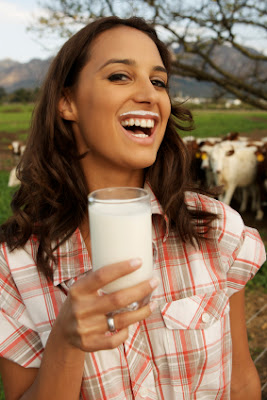Although for thousands of years humans have used the milk of other mammals as a nutritious food source, in recent years, the way the animals are raised, how they are fed, and the components of the milk has led to a host of questions about its health benefits, in particular cow’s milk which many authorities now warn against. Even health care professionals can’t agree on its value when it comes to human health.
The reason for this has to do with several compounds milk contains, namely lactose, saturated fat, growth hormones, casein proteins – specifically beta casein type A1 and type A2, and whether the cows are grain-fed or grass-fed. With consumers facing all of these issues, it stands to reason that some people would simply opt out, deciding to skip dairy products altogether. Yet, it is important to recognize that not all milk is the same. Conscious, sustainable farming, humane animal practices, the care and proper feeding of the cows, the conditions in which they live, their time in fresh air and on pasture, and even how the milk is pasteurized, makes a tremendous difference in the quality of the milk and butterfat.
 |
| Milk, Anyone? |
Humans have always relied on animals as an important source of nutrition. Milk, which humans have been drinking for approximately 7,500 years, provides healthy fats, proteins, vitamins and minerals in concentrated amounts that humans can’t get from eating plants. The rich, delicious butterfat of milk contains easily assimilated nutrients like Vitamins A, D, and K2, as well as CLA (Conjugated Linoleic Acid) and other critically important fatty acids, minerals, and vitamins.
Although plants are very nutritious, humans can’t digest them the way that cows do. Because cows have four-compartment stomachs, and because they chew their cud, they are able to perfectly ferment and digest huge amounts of grass, flowers, herbs and other naturally growing plants, breaking down, converting and concentrating the nutrients into a highly usable, easily digestible source of nutrition for humans. It’s a wonderful act of nature! Because of their complex, highly evolved digestive system, cows convert plants that humans could never digest into healthy, life-giving nutrition.
This leads to the million dollar question: Is cow’s milk really only for calves and not for humans? According to Ayurveda, the ancient, renowned system of healing, cow’s milk is sweet, calming nectar, providing nourishment on many levels. When properly prepared and digested, milk is said to strengthen the immune system, promote balance and a sense of well-being. Ayurveda recommends adding spices like turmeric or cardamom for added health benefits. Black pepper, cinnamon and ginger can also be added. Organic, grass-fed milk insures the highest quality milk available.
For more information on beta-casein Al and A2, please see our article here.
About the author: For over 124 years, Pure Indian Foods has been selling healthy, organic Indian food ingredients including organic ghee, Indian spices, and Ayurvedic foods. Their products can be purchased at www.pureindianfoods.com.


Can you please provide references to Ayurvedic scriptures mentioned in this article?
Here is the reference from Ayurveda text "Charak Samhita Sutrasthanam", Chapter 27, Verse 214:
स्वादु शीतं मृदु स्निग्धं बहुलं क्ष्लक्षणपिच्छलम् ।
गुरु मन्दं प्रसन्नं च गव्यं दशगुणं पय: ॥